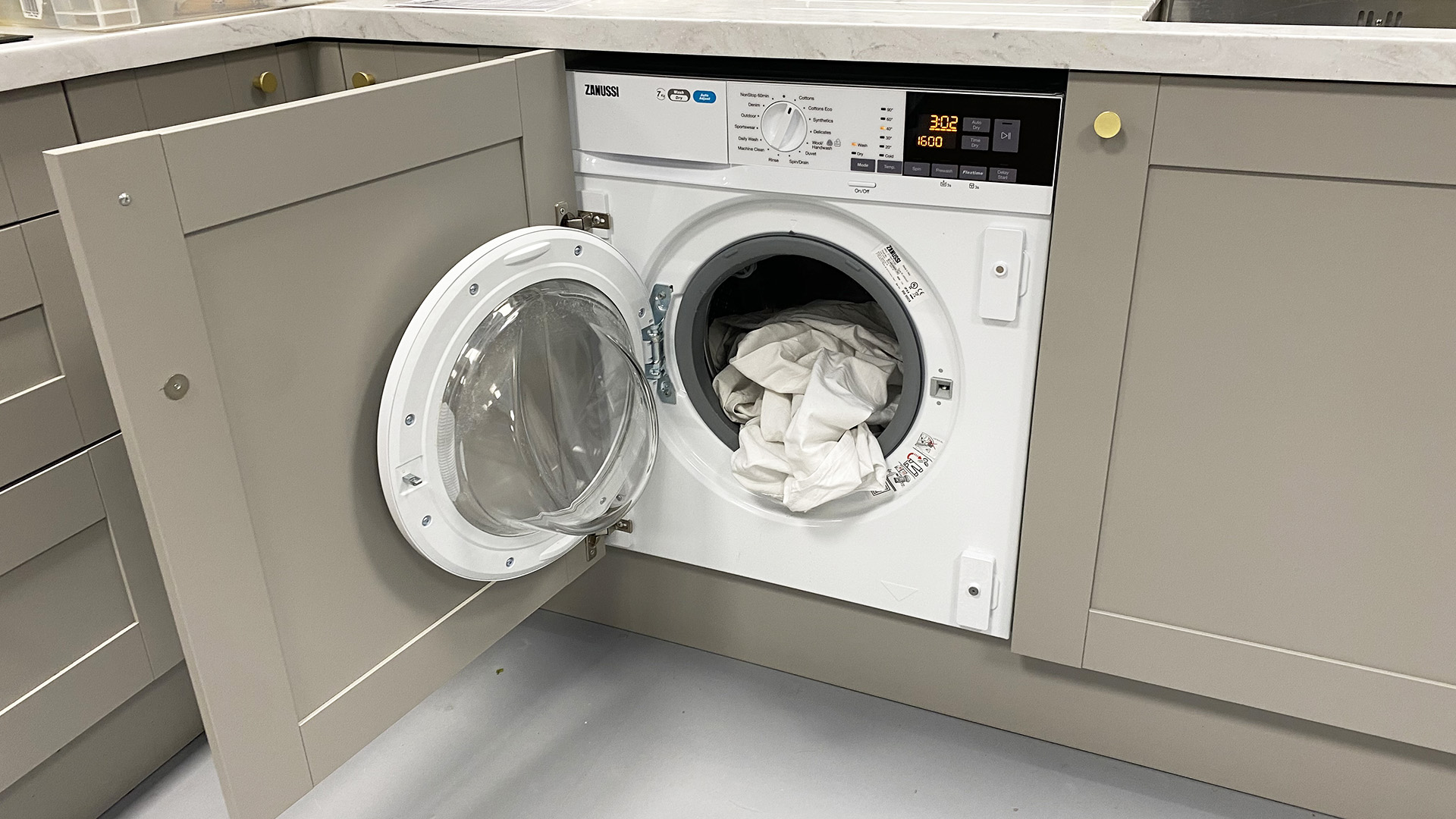
Washers are one of the most used appliances in our homes, so it's important to diagnose the problem quickly when you find yourself wondering why your washing machine is making a loud noise. Regardless of whether you've chosen one of the quietest washing machines for your home, a loud noise is usually a sign that something isn't right.
There are a whole bunch of reasons as to why this might be happening, and if you are the owner of one of the best front load washers or best top load washers, you'll want to fix this quickly. They're expensive appliances to purchase and should last you for years to come thanks to generous warranty policies from the top brands, but problems can still arise.
Whether you've accidentally left a shoelace loose after learning how to wash tennis shoes in a washer, or there's a bigger issue with the installation, we've put together some quick ways for you to assess the issue and hopefully mend it. This way, you can get straight back to shrinking those ever-looming laundry piles.
Why your washing machine is making a loud noise
There a few reasons as to why your washing machine is making a loud noise, ranging from easily fixable to needing to call in a professional. Luckily, you can check and mend most of these things yourself, so with the help of Appliance Expert Simon Hughes, we've outlined the top issues to look out for.
1. Check For Loose Items
When dealing with a noisy washing machine, one of the first things you should do is inspect the machine for any loose items. Check the drum thoroughly for any loose items that may be making noise such as keys, coins, or anything else that may have fallen out of a pocket into your machine. Use a torch so that you can check the drum properly for any random objects and remove anything that shouldn’t be there. Then, run the washing machine again to see if the issue is resolved.
2. Check The Seal
It might be that there are items stuck in the seal of the washing machine. Simon recommends "check all areas of the seal and give it a good clean while you’re looking. Things can commonly become trapped in the seal, so this is a good place to start when looking for the hidden culprit of the noises you’re hearing."
While you're here, it's a good idea to check the rim and learn how to clean mold out of a washing machine, as this often gets stuck here and can cause your laundry to smell like mildew.
3. Clean The Filter
Sometimes loose objects may have found themselves in the filter. It's a good idea to check that there are no blockages here as this could cause much more damage to the machine.
4. Level The Washing Machine
"When your washing machine is not level, it may bang and knock on the floor, wall, or surrounding cupboards or appliances. Check to see if the washing machine is balanced properly and ensure that it is placed on a level surface", Simon says.
Luckily it's simple to learn how to level a washing machine at home, so it should be quick to fix if this is the cause of the loud noises.
5. Check The Drum Bearings
Simon says, "If you’re sure that your washing machine is level and there are no loose items inside, the next step is to check the bearings. Begin by turning off the water and then use your washing machine’s manual to help you find the drum bearings.
Remove the back panels on the machine with a screwdriver and remove the drive belt. Spin the drum and listen for a rumbling sound. If there is a rumbling sound, the bearings will need to be replaced. Check your manual for more information on this or reach out to a professional for more help."
5. Replace The Drive Belt
Washing machine drive belts can also make strange, loud noises. If you've tried all of the above and you still can't get to the bottom of the problem, the sounds are likely due to the belt being worn down.
If so, you may need to replace the drive belt and call in a professional for help.
6. Check The Pump
Simon also advises that it's worth checking the pump: "If you have a faulty pump in the washing machine, this may create a grinding or grating noise. If you’ve tried all of the other options and your washing machine is still making noise, consider replacing the pump to see if that rectifies the issue."
Discover more guides for the home…
Best steam mops
Best robot vacuums
Best handheld vacuums
Best carpet cleaners







